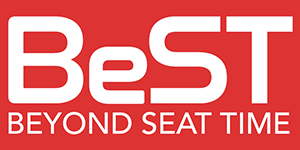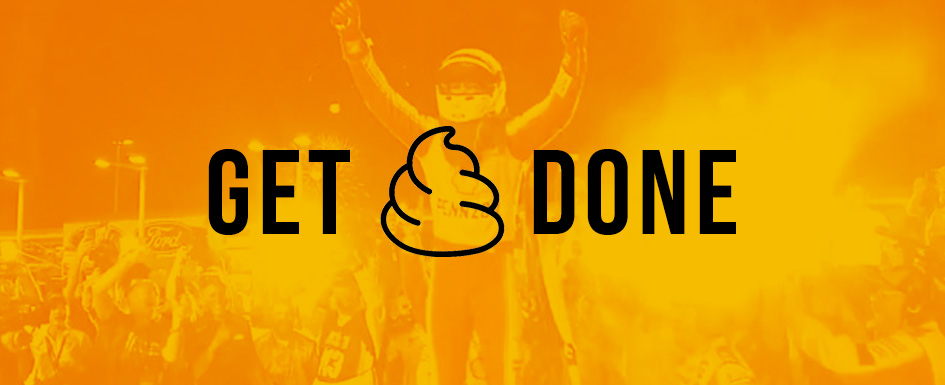Long time readers of this website know that I like to start off each year with a little introspection (and some tough love).
Do you know someone who wants to get in better shape, but is still “doing research” on the right workout plan and diet? Or perhaps they already workout somewhat regularly, but haven’t made the progress they want? Maybe you know someone who has been talking about looking for a new job, but has been “working on their resume” for years now? Or, a friend who says they want to meet a new special someone, but refuses to put themselves out there and says that they “just want it to happen”?
So many of our friends and family members have had the same goals and aspirations for years at a time, without having made any real progress towards any of them.
Maybe this is true for some of your own goals too? It is hard to admit, but it was certainly true for me… for years!
Have you ever noticed that when we talk about what we want, we tend to get myopically focused on the end result, and completely ignore the steps or the process it takes to get there? We think about how great it would be to lose the extra weight, but we ignore the lifestyle changes we need to make to get there. We think about how badly we want the job we’ve applied for, but we don’t think about how to show the hiring manager that we meet what they are looking for. We imagine some day in the future when we will have more money, without having any plan for how we will get there.
We focus almost exclusively on “I want this”, instead of “What does it take to get what I want”.
We ignore “what it takes” because our internal systems are designed to rely on old habits and resist change. Breaking habits is physically and emotionally uncomfortable, so our brains have a built-in mechanism to resist that and come up with justifications to validate our inaction.
“What if I try and fail? I’d look like such an idiot, plus it would be a waste of time and money.”
“That approach may work for others, but it probably won’t work for me. Besides, if it is going to happen, it should happen naturally.”
And we continue on, carrying along the same old goals, unrealized year after year.
The false hurdle of “Time”
What’s even more interesting is that we use certain phrases to soften the blow to ourselves. If you ask some people why they don’t work out, they often respond with “Ahh, I should, but I’ve been really busy”, or “I’m focusing on other things right now.” Notice that the qualifier is an external factor, like time.
The same is true with travel (“I should take more vacations, but I don’t have the time/money right now”), or investing money (“I’ll start investing when blah blah blah”).
The reality is, doing anything never gets easier than right now. There is no special moment in life in the future when circumstances will be perfect. There will always be other demands on our time, our attention, etc. Time is always passing, whether you do something with it or not.
The real hurdle isn’t “time”; it is breaking habits. Do you know what the hardest part of investing money is? It’s not deciding on some complex asset allocation. It’s actually getting started and making the first deposit. And the hardest part of working out? It’s getting through that first week to establish a routine.
The same is true with achieving our performance driving goals. The hardest part, every single time, is just getting started with prioritizing what to work on, and developing a system to work on it.
Instead, we look for shortcuts and magic bullets. “Do this one thing and you will drop 2 seconds!” Everyone wants a tactic; what’s one thing I can do to immediately go faster.
We see the fastest drivers in our sport, and either rationalize it as them being more talented, or think that they know some secret that the rest of us don’t. We ignore all of the work that they put in when we weren’t looking. We ignore the process and only focus on the end result.
Top achievers know that building excellence takes time, and study, and practice. They told us this in their own words here. Realizing our goals takes more than random tactics; it takes having a system for improvement, and the willingness to change our habits.
30-day challenge
In the next 30 days, challenge yourself to make more progress towards your driving goals than you made all last year. Don’t just consume videos and blogs; make an actual plan for your development and start acting on it!
You enjoy reading my stuff on this website? Great. Now put it to use! Even if you only follow the free articles, we’ve already talked extensively about smoothness vs. aggression, the visuals of braking, getting better at identifying and fixing mistakes, when to get on the gas, and much more.
If you enrolled in The Complete Autocrosser’s Manual, we covered all of the nuances of line selection, when to add or trim distance, how to link corners, techniques for optimizing slaloms, advanced car control, minimizing the effect of mistakes, determining your 3-run strategy, mastering your performance mindset, how to learn from faster drivers, driving in the rain, etc.
The key is to go beyond just “learning more”, and to implement change. Prioritize specific areas for improvement, make a plan for instilling the new skills, and hold yourself accountable to seeing that development through.
If you are enrolled in the course, you already have a system and a complete action plan mapped out for you (all of the “take action” items).
2019: The year of taking action
Look, I’m going to call you out. I want to see you putting in the work. If you have been regularly reading my stuff (or material from other websites and books), you are clearly interested in improving your skills! So it’s time to create a plan (or follow a plan that’s already made for you), and make the improvements you actually want. Quit just consuming material, and start producing.
I’m going to be your surrogate Indian dad, pushing you to make an A+ instead of just an A.
The false hurdle of “Money”
Many of us have this weird resistance to getting help for things that we think we should be able to do ourselves. “Pay for a personal trainer? No thanks! I can just find workouts/exercises online.” And yet, we are surprised when we look the same year after year.
The invisible script here is – “If I pay for someone to help me, they win and I lose.”
Participating in motorsports is expensive for sure, but when it comes to investing in our own development, I don’t believe any racer who says that money is a hurdle because there is something available at literally every budget level. If your budget allows, absolutely, take advantage of a personal coach or racing schools. If not, there are a multitude of online courses starting from $58 (such as this one) and going up from there. There are innumerable books as cheap as $10. We don’t hesitate to spend hundreds or thousands of dollars on our cars, but we balk at the idea of spending even one tenth of that on our own development.
I had someone tell me: “OK, you win, I’ll buy your course.”
I thought that was such an odd thing to say. You investing in your own success is not “me winning” and “you losing”. The real hurdle isn’t “money”; it is changing your mindset to accept that not everyone offering help is trying to scam you.
And look, I’ll be the first to say: The Complete Autocrosser’s Manual is not for everyone. I’ve turned away over 20 interested buyers who were ready to hand me their money, by telling them I do not think it is a right fit for their needs. My interest is not in maximizing the number of one-time transactions; I want to be a trusted advisor to help you achieve your driving goals… whether that involves any course I offer or not.
At the end of the day, I hope you take your own development seriously.

